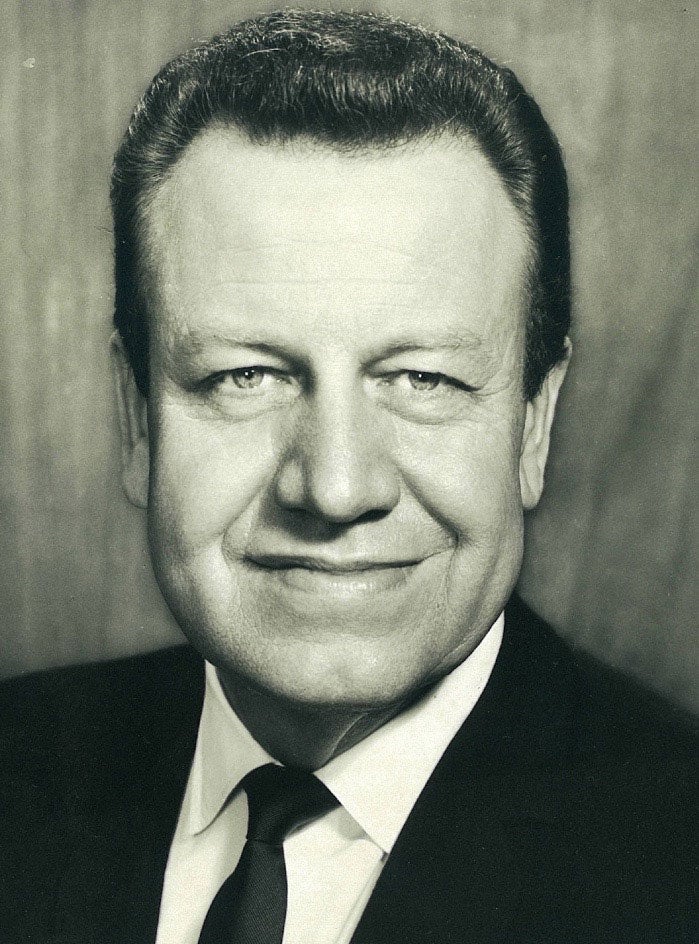
Tribute, USC Center for the Political Future
Jesse M. Unruh rose from an impoverished childhood to be one of the most powerful people in California politics over the course of four decades. As a war veteran and alumnus of the University of Southern California, Unruh excelled quickly from his elected position in the California State Assembly to become Speaker of the Assembly by 1961. After campaigns for California Governor and Mayor of Los Angeles, Unruh was elected California Treasurer in 1974.
During his tenure as Treasurer, Unruh vastly expanded the role of the Treasurer’s office by asserting the Treasurer’s power over numerous boards and commissions that controlled millions of dollars of State revenues. In 1977, Unruh established the Local Agency Investment Fund (LAIF) which is “an investment alternative for California’s local governments and special districts. Since 1977, when it was established the LAIF has grown from 293 participants and $468 million to 2,750 participants and $19.8 billion in 2004.” In 1978, Unruh publicly called the State’s budget surplus “obscene,” giving credibility to the property tax reform movement that resulted in the passage of Proposition 13.
In 1987, the friends of Jesse M. Unruh renamed the USC Institute of Politics and Government, originally founded in 1978, to the USC Jesse M. Unruh Institute of Politics and endowed it in his honor. The former politician’s commitment to policy and people was lifelong and his leadership laid the foundation for political internships, conferences and panel discussion that make up the Unruh Institute today.
The Institute’s mission is to champion Jesse M. Unruh’s ethic by motivating students to become active in the world of politics, and to encourage public officials to participate in the daily life at USC. Jesse M. Unruh’s influence spanned many decades and reached thousands of constituents. The Jesse M. Unruh Institute of Politics strives to expand this reach. The Institute takes a broad view of politics, to include all aspects of public life in which a community makes decisions that affects its members. The programs are non-partisan, and designed to motivate, encourage and inspire students to learn about the world of politics.